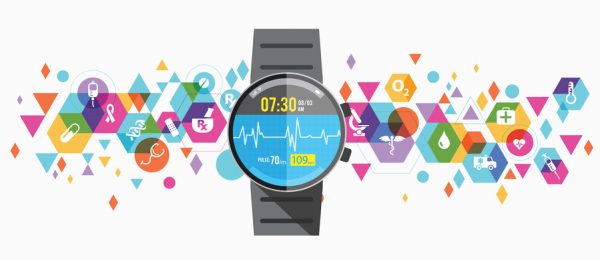
In the ever-changing landscape of healthcare technology, wearable gadgets could potentially prove to be a game changer in the area of neurological disorders, particularly those that present communication barriers. Consider a situation in which someone with dementia or autism might digitally communicate their unspoken thoughts without becoming agitated. This transformative capability amplifies the significance of timely recognition applications facilitated by wearable technologies.
Communication-impaired neurological diseases: The silent battle
Conditions such as autism spectrum disorder and dementia affect millions of individuals globally; when communication issues are added to the already existing ones, challenges to patients and caregivers are magnified. Agitation, which can typically be the result of unmet needs and frustration that arises from impaired communication, can drastically reduce the quality of life for those affected by these disorders.

NEMT Partner Guide: Why Payers and Providers Should Choose MediDrive’s TMS
Alan Murray on improving access for medical transportation.
Recognizing the signs
Agitation, which is usually defined by inappropriate verbal, vocal, or motor activities, can escalate rapidly if left unaddressed. Timely detection is therefore critical in order for caregivers to take action on time, avoiding further complications related to harmful symptoms. Through the use of wearable technology with advanced sensors, they can obtain real-time access to behavioral and physiological markers, gaining valuable insights into that person’s well-being. Early detection methods could, therefore, assist home caregivers and clinicians in helping the individual they are caring for, before things get out of hand. Naturally, this would ease some of the caregivers burdens, but it would also be advantageous for the patients personal wellness, which is the primary goal of healthcare services.
Understanding the complexity: Subtypes and neurobiology of agitation
From non-aggressive verbalizations to physically aggressive acts, agitation can take numerous forms. Therefore, personalized care measures may consequently be essential, particularly in the case of early detection, as each subtype presents distinct issues of its own. Furthermore, investigating the neurobiology of agitation might help clarify its underlying causes and provide insightful information for tailored treatment approaches. In this view, integrating digital phenotyping with precision medicine principles may improve early detection and intervention methods for people with such neurological disorders.
Wearable sensors
Traditional agitation assessments often rely on subjective observations, which can make accurate measurements difficult to obtain. Neuropsychological testing, while very helpful, is often time-consuming and usually provides retrospective instead of real-time data. On the other hand, wearable devices equipped with a variety of physiological sensors can be used to detect agitation non-invasively and objectively. By continuously monitoring changes in movement patterns and physiological data, caregivers have the opportunity to better predict and respond to agitation. Such a shift from subjective to objective measurement could not only improve the accuracy of detecting agitation, but it would also allow for proactive interventions that improve the quality of care among persons suffering from neurological disorders.
Utilizing multi-modal sensing
According to recent studies, a rather effective approach to detecting agitation involves the use of a method called multimodal sensing. This technological endeavor integrates wearable devices with ambient sensors and artificial intelligence algorithms. By combining data from a variety of sources, such as physiological markers and environmental prompts, caregivers can have better insights into individual requirements and triggers. Researchers suggest that this holistic strategy has the potential to optimize the accuracy and effectiveness of early detection techniques in agitation.
Creating supportive environments
Just like any other person, but especially for those affected by neurological disorders associated with dementia, mood and behavior can be largely influenced by the living environment. Research has demonstrated that ambient sensors, such as motion detectors and smart plugs, can offer valuable information on environmental predictors that may aggravate agitation. With an understanding of these factors, caregivers as well as medical facilities can proactively design personalized living spaces that cater for the specific needs of each person. This personalizing approach seeks to minimize the incidents of agitation while improving overall well-being among patients.
Empowering caregivers, improving lives
Wearable technology appears to offer great potential for early detection and management of agitation experienced by people with communication-impaired neurological disorders. Through the use of wearable sensors and a multimodal sensing approach, caregivers can provide personalized interventions that could significantly improve patients’ lives. Continuous research and innovation are paramount to meeting the unmet needs of this vulnerable population and enabling caregivers to have efficient tools for proactive care management.
Photo: exdez, Getty Images
R Sterling Snead, is a data scientist and CEO of The Self Research Institute, a non-profit specializing in personal informatics research and development of industry-leading software. Sterling is also the principal of Snead & Stoffel Global Family Office, a single family office, specializing in investments in data science across multiple industries. Sterling’s passion for data arose when numerous family members improved their quality of life using their own health data. With 14 years in leadership roles and a Ph.D. candidate in personal informatics, his mission is to improve individuals’ quality of life internationally with research and development.
Alex Malioukis is a Licensed Psychologist at The Self Research Institute, with a Master’s degree in cognitive neuroscientist and clinical neuropsychologist, and a passion for the underlying mechanisms of what makes us human (work still in progress!). Alex works in the research faculty for the Self Research Institute, using self-tracking practices and technology to assist individuals and organizations in overcoming obstacles, realizing their full potential, and achieving their objectives.
This post appears through the MedCity Influencers program. Anyone can publish their perspective on business and innovation in healthcare on MedCity News through MedCity Influencers. Click here to find out how.









